Here We Are with Sung Kang
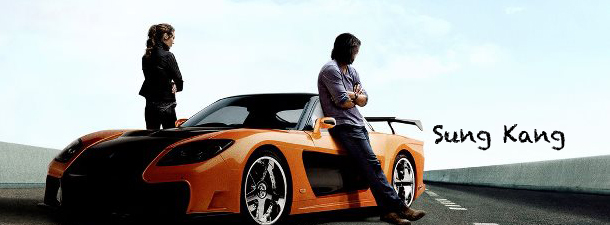
Sung Kang made his mark on Hollywood over fourteen years ago. But, it was with his portrayal of Han, the sometimes instigator / sometimes mediator between two clashing forces in The Fast and The Furious: Tokyo Drift, that melted him into the hearts of audiences worldwide. It has been seven years since we were first introduced to Han, and once again he hits the big screen to shake things up with the rest of the crew in Fast & Furious 6 (opening today in the US check your local listings). We caught up with Sung to discuss cars, characters, acting and snacks.
MV: Welcome to Movie Vine, Sung.
Sung: Thank you.
MV: To begin let’s talk about Fast & Furious 6. What can fans of the franchise expect from this installment?
Sung: I will just say, too much action. Too much. In a good way. In a positive way.
MV: You filmed all of this action in London, correct?
Sung: Yes, we did. There and the Canary Islands.
MV: What was the mood like in your host cities while filming? Did fans come out to greet the cast and crew on the streets?
Sung: In any Spanish speaking territory they treat us like family and rock stars. I mean, they are so excited to see us so people are everywhere. In London we have our fans, but they just seem to be a little bit more sophisticated in how they show their appreciation. It’s more dignified. It’s not as intense. Which makes it an easier place for us to shoot. But, the balance is the fact that to shoot in London is almost impossible because the older buildings are regulated in a way where we’re not allowed to shoot in most of the area. At the end of the day you see the big set pieces like Big Ben, the London Eye, and stuff like that. But, when we were actually shooting in the streets you can’t really tell the difference if we’re in downtown L.A. or in London to be honest with you. If the city is a character it never seems to work out that way.
MV: I’m sure it was probably bittersweet climbing back behind the wheel for the past couple of films knowing Han’s ultimate fate. What has your experience been like in bringing Han back to life (so to speak)?
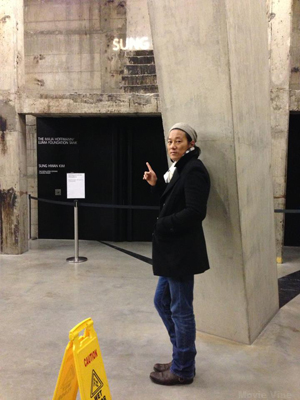
Sung: I was happy that I got to come revisit the Han sendoff because I felt like when we first started Tokyo Drift there was a lot of philosophies behind Han. I could look at it objectively and go “yeah that makes sense”, but I didn’t really live through those experiences at the time. I feel like now it was nice because I’m a little bit older. How lucky am I that I can come back and revisit that character and give him a proper sendoff? You know? So it wasn’t really bittersweet for me. I think as I’ve been in four movies, and I’ve played Han five times, it’s been a great life for that character. I think this is a proper sendoff for him.
MV: The writers created this brilliant way to bring back all of the characters. So you get to see a little piece of everyone’s lives. Where they came from, and for some where they are headed. But, at the same time it’s about this big family getting back together and the stories can be endless. It’s exciting. And, it’s been over 10 years since the first one, right?
Sung: Yeah.
MV: I’ve enjoyed seeing how everyone has grown. I’m excited that they brought Han back because he was my favorite. I think it hit the fans really hard. So this has been a great way to revisit a favorite character for everybody. And, now fans have the chance to let him go.
Sung: I’m so grateful that you think that way because I get constantly asked “are you going to come back for 7 and 8 if there is another one”. And to be totally honest with you, I think it would be cheating the fact that I think it’s time for him to move on. As an actor, that’s the kind of character which is a gift. It’s been a gift from the writers and in such a memorable way. Very meaningful.
MV: What has been the most enjoyable aspect of telling Han’s story within this particular timeline?
Sung: The relationship with Gisele and Han. We were trying to make sure that we didn’t have an agenda. We are past that. But we went deeper and were like “why are these two characters together?” At times it was out of convenience. We started talking about relationships, friendships, marriages, girlfriend/boyfriend, all of that. And, at the end of it we ended up coming to the conclusion that the only relationships that really work are relationships that have been earned. Earned not bought, or out of convenience, a self need, a personal need, or a selfish need. And, it felt like that every time with Han and Gisele. We were pursuing that so we had something to constantly ground us and go “alright let’s earn that. Let’s earn that respect for each other”. You know people can say “I would die for him” or “I would take the bullet for him” or whatever. But, would you really? And, why would you? Based on love? It is love, but I think that earned love actually merits that. At the end, I think we achieved that.
MV: Well I think it’s important to have heart in action anyway. You know? It’s got to be that perfect marriage because otherwise you’re only going to reach half of the audience. The girls are in it for love and the guys are in it for action. It catches you off guard and you think “I can’t believe I’m going to cry at this”. It’s all of those undercurrents of love and loyalty, affection, betrayal, confliction and everything. It’s a great stepping stone from film to film. Where you continue to grow with the characters and you see where they are going. Like we talked about a second ago, we know that Han is willing to pay the ultimate sacrifice for his friends. Others for love. Most people wouldn’t. So, it’s probably cool as an actor to be able to play those subtleties knowing the end.
Sung: Absolutely. I’m just so happy you got it. You know? So when people say that to me “I can’t wait until 7 and I can’t wait until you come back”. I wonder “why would you want me to come back?”. It doesn’t make any sense.
MV: Yeah. I can see that. Shifting gears a little bit, you have now had the chance to learn about two completely different types of racing worlds: drifting and drag racing. Which did you find more entertaining to film?
Sung: I think the drifting stuff was a lot more fun because we actually got to go out there and get in the cars. We got to train and stuff like that. But, with these films, because of insurance reasons, we had to take a back seat to everything. Just barely even sitting in the cars.
MV: Were you aware of drifting before Tokyo Drift? Because even now when there is just a little bit of drifting in the films, the audience goes nuts.
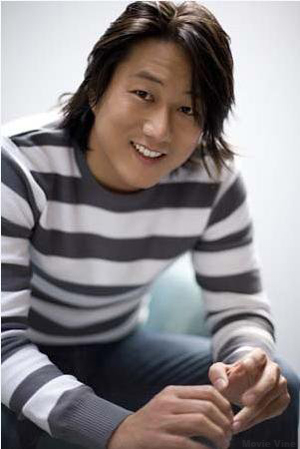
Sung: I actually had no idea that drifting even existed. I was not really into the Japanese car culture as much growing up in the South. It was all new to me. I think that is also why it was so exciting – going back to your last question. Getting to learn and appreciate the Japanese cars and the drifting community. They are obsessed. The Japanese when they get into something they are obsessed over it. The irony is that the best drifters are actually from Finland because they have so many hilly mountains there that are always iced up. So they start to learn how to drive and drift when they are young. My driving drift double is always this Finland drift champion. My doubles always hate doubling me because they have to put on that wig. You know in 6 with all of the motorcycle stuff with Gisele and I? The guy who was actually doing all of the stunts was so pissed off because it was so hot. We shot that in Spain. I go walking up to him and was like “hey, what’s up, you’re great”. And he just gave me this dirty look. He was so unhappy. It was so hot.
MV: (laughs) Poor guy. Do you have a preference when it comes to cars? For instance, do you like muscle cars over tuners?
Sung: I do. I prefer any Mustang before ’69. Those are the fastbacks so… I would have pictures of the fastback Mustangs as a kid. Especially that Steve McQueen Bullitt car. I was pushing that car so hard and that’s why they actually put one in Tokyo Drift. At the end of the movie that’s what Sean Boswell races DK with. I really wanted Han to drive that car, but it didn’t make sense in the script I think. I’m very partial to that. It just represents the American teenage cool. You know? It’s the “one day when I have money I’ll be like Steve McQueen”. Because for us he represented what was a guys-guy. You know? He was more accessible than like a James Dean or you know those types of guys. Steve was like the guy next door. The mechanic next door.
MV: Did you have a favorite car movie growing up or was it Bullitt?
Sung: Bullitt was definitely one of them. And, because I was a child of the 80s that Trans Am from Smokey and the Bandit was also a dream car. (laughs) And, the Knight Rider Trans Am. But, now I look back and I go “man, those didn’t hold very well, huh?”.
MV: No.
Sung: And then the Fiero GT. (laughs) I thought that was the coolest car. But, again I’m from Georgia. You know?
MV: Yeah. I completely understand. I grew up in snow country. I always wondered why people would choose those kinds of cars. I mean, that’s how I first learned how to drift, you know, in snow by accident. (laughs) But, why are they driving that car around in the snow? It’s not practical. But, it looks cool.
Sung: Wait a second, Jan, so you drift? You know how to drift?
MV: (laughs) No. No. No. I was kidding. By accident.
Sung: Oh. (laughs) That’s called hydroplaning. You can’t over represent yourself. That’s hydroplaning … out of control. Drifting is being in control.
MV: Hey, I was in full control in the snow. I knew I was either hitting this snow bank or that snow bank. (laughs) Actually, I’m a terrible driver. But, I do love muscle cars.
Sung: Do you have a muscle car in the garage?
MV: No. I wish. I’d love a ’67 Camaro.
Sung: I think we have one in the movie. There is Han’s Camaro in the movie. Everybody has their own unique taste. I’m not a Camaro guy. I don’t see why people are into that. Mustang is like … well I look at it and I start to drool. Literally. It’s like my first crush.
MV: It is an understandable visceral reaction. It’s like Homer Simpson with his doughnuts.
Sung: (laughs) Yeah.
MV: Let’s talk about Gang Related. You play Detective Kim. Has it been refreshing to play action from the other side of the law, or do you have more fun on the run?
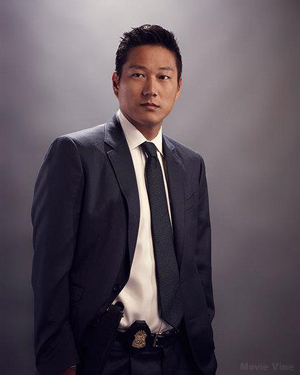
Sung: That’s a great question. They are just so different on scale. I think since TV is such a smaller scale you’re not going to have all of the big explosions and big set pieces. Funwise, it’s like going from DisneyWorld to Knott’s Berry Farm. That’s the perfect example. They are both great. They both have rides. There are unique things about it, but the scales are so immensely different. But as a character, and as an actor, I’m looking forward to working on Gang Related because of where this character can actually go. There is so much room in a TV series because you have so many episodes. And, I think if we do well then we’ll do twenty-two episodes a year. So you’re working ten months with the same cast. For a majority of TV actors they understand that this is a marathon not a sprint. So they come in with a different perspective on the business. It’s not necessarily that one thing is better than the other, but it’s just a different animal.
MV: What can you tell us about your character?
Sung: I am really looking forward to exploring this character because Chris Morgan created the show and he’s now writing the episodes. It’s always great to have a writer that is always thinking about where we can take a character that’s good for him. Instead of just being the angry Asian guy in the background or something. You know? We go into his family life. Where he came from. Why he is the way he is. And, then for me the most exciting part of it is that … Well you meet so many Asian-American actors in town and they talk about how they are always looking for better opportunities in terms of the work. I feel like if I’m in a show then they have to cast other Asian-Americans as my mother or father, love interest, or friends. I mean even the bad guys of course. I look forward to the opportunity of getting to maybe rehearse with them early, before even the blocking rehearsal. And, really show the Networks that ‘man, these guys, they take their work seriously, they elevate the show, they elevate the work’. I feel like I’m old enough, and I feel like that is a tradition that has been handed to me, and I can’t wait to be able to give it back. And, not just to Asian actors of course, but because I’m so connected with that community that I feel for them. Most of the time they’re playing the gangster guy or the computer geek. Hopefully we can elevate that with conversations. Because I know Chris, I know that he’s always aware of it. You know there is no agenda with this show. But, I feel like that’s one of the elements that gets me really excited about going to work.
MV: I agree. I noticed that the cast has such a great diversity. As an actor, you’ve had the incredible opportunity to break character stereotypes in most everything you’ve done. Would you mind talking about the importance of casting the right actors for roles instead of limiting roles only for specific actors?
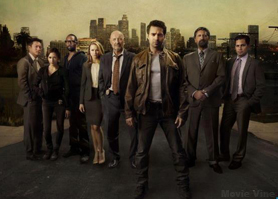
Sung: For Asian actors, and for Asian characters, it’s so difficult to talk about that because it’s a “lack of opportunity, lack of this, lack of that” and it sounds like you’re getting on a soapbox. It actually just comes down to pure economics, and we make up maybe 5% of the United States so there is a demand for us. Will that carry over and will they interpret dollar signs? No. It doesn’t make sense. When Asian actors get mad and start venting about that I go “look, if you were in China, or Hong Kong, or Korea, or Japan the minority would be white people. When you turn on the TV they won’t be on there. And, the roles that they do get will be the evil imperialistic white man. That’s all you ever see. Or some exotic European hooker. Imagine how they feel. Right? So the only reason why that’s happening is because you guys are the majority there”. So, you’ve got to look at it that way and at the end of it Hollywood is not racist. It’s a business. So we can’t approach it in that way. But, I think in terms of casting the right nationality for a Korean, basically if they are speaking the language that is up to the directors and the producers. If they feel that they want to express their work at that level where they will respect that culture and that character’s background by casting an actor who can convey the language as it was written. Even though many Americans won’t understand the difference between Chinese, Japanese, or Korean, it’s up to you as the director. I’ve always kind of stepped back and go “well, what do you guys want? You are the boss. You created this. If you don’t care well then we can dialogue about it, but it’s going to affect the quality of your show at the end of the day”. It’s all about details that make these things successful. I can put in my two cents, but I also know that at times I won’t win the battle. But, the fact that I’m there, the fact that they respect my opinion. I’m not there to complain about things, but to contribute. I feel like that makes a big difference.
MV: Absolutely. Thank you very much for sharing that. I have noticed that there has been a shift in casting, and I love that because I think that has been an issue for so long. But, you’re right I’ve never thought about it the other way. It might feel like an issue here in America, but it wouldn’t internationally because it’s flipped everywhere else you go.
Sung: And you know, there was some Korean dialogue and they actually cast a Chinese guy. There just weren’t any older Korean actors that they could cast. And, I get it. Socially you’re not going to find older people who were born in the 40s or 50s who would be actors in America. Because entertainment was frowned upon as a second class career. So if you are an actor then you would have stayed in Korea and worked there. So for them to actually cast well versed, well trained older Korean actors is almost impossible. But the Chinese and Japanese have been here longer so you’re going to find older actors that will understand the rhythm of a TV show. So once you understand why this is then you know it was nothing personal.
MV: It’s been interesting watching Hollywood start to take notice of casting choices. But, I wasn’t aware of that either. It never dawned on me that there wouldn’t be an older generation of Korean actors here in America.
Sung: Yeah. It totally makes sense, right?
MV: It does. Would you mind sharing a little bit about what first inspired you to become an actor?
Sung: I went to San Francisco as a kid and my parents took me to the pier. And, they left me there to go get some clam chowder in the sour dough bread. There was a mime there. As a kid I was fascinated by this mime. This guy started making me sad, he started making me laugh, he started telling this story, and then the power he had over me within those ten or fifteen minutes was something I was so attracted to. I think that planted the seed of: I want to entertain. I want to make people laugh. I want to make them sad. I want to be able to tell this emotional journey and affect people. And so that was the beginning. As I grew up to be able to talk about the desire to act or theatre it wasn’t a conversation we had at our dinner table. You know, because my parents worked their ass off to give us opportunity in this country. The arts were so foreign to them. It was about pragmatic get a job, and get your business card, and get insurance, and then retire so you can get your retirement. To them, that’s success. That’s the American dream. But, they would also plant into my head that it doesn’t really matter what you do just make sure you are happy, and do the best you can all of the time. And, if you’re happy with your job then you’re always going to do that. So one day they were upset that I was going to go into acting. I told them “well, you’re the ones who told me to search for something that I also love to do and I know I’ll be happy doing this. Yeah, I might be poor, and all of that stuff. And, you can’t brag about me. But, yeah I know I’ll be happy. I won’t be happy doing something else”. So I would always sneak away to the movies. I remember the first movie that really affected me was The Red Balloon movie. I think it’s a French film. They had it at our local library on the weekend. And, I was like “I want to do movies. I want to be in that.” So every chance I had I would try to do theatre and just kept pursuing it. And, here we are.
MV: Here we are. Do you think you have found the trick to evoking emotions from the audience, or is that something that is an ongoing lesson?
Sung: You know, I don’t think I know any of that. I think now I know less than I did. I thought I knew something when I started, but as I get older I tell myself “Gosh, you’re so bad. You gotta try and get better. What is wrong with your face? What are you doing?”. (laughs) So I don’t have any secret tricks. You know? I don’t have any tricks.
MV: (laughs) Last question, we should note that in all of your Fast and Furious films Han is always snacking on something. Since you were raised in the South around good old fashioned comfort food what is your essential go-to snack when you are on the road?

Sung: Sit down snacks or convenience store snacks? Biscuits and gravy if it’s a sit down snack. I’m very simple. I’m the commercial driven snack guy. Even with like pizza and stuff. People talk about the gourmet pizza, but to me the best pizza is Dominos. Dominos pizza is the best pizza. Because it’s comfort food. It’s what I grew up on. No matter where you get it in the States it’s always the same.
MV: And, for convenience store snacks?
Sung: Doritos. Just a regular Doritos and a Dr. Pepper on the road. Something bad. Anything bad and cheap like Now and Laters. You know actually I had a Now and Laters business in school. I would sell Now and Laters during lunch for a quarter.
MV: (laughs) You did?
Sung: Yeah, and then I got busted by the Principal. (laughs)
MV: So you do like being on the other side of the law.
Sung: But, for the good. For the good of everyone.
MV: And, the sugar high. Well, thank you very much for hanging out with Movie Vine, Sung.
Sung: Thank you!
*Be sure to follow Sung on his official Twitter (@sungkang ) and like his Facebook page ( Sung Kang ). Fast & Furious 6 is now playing in theaters. You can catch Sung on Gang Related this Fall on FOX.
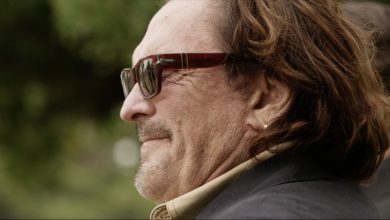

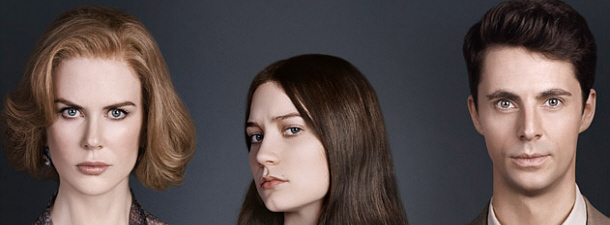
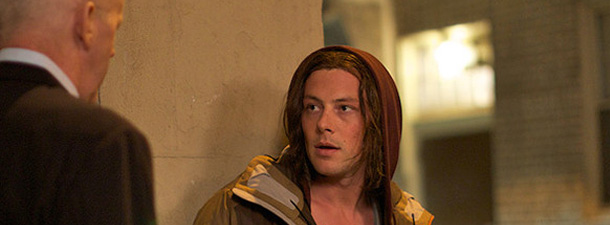
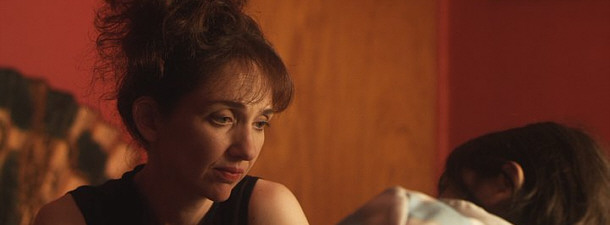
Best interview with Sung Kang, ever! See, he is my reason why I wanna be in the industry, he was poor, but he wouldn’t do anything that doesn’t make him happy. He went for his dreams! You know what they say, when you love your job, you never work a day in your life. Sung has been a great inspiration to Asians like me. I love this guy! 🙂
I love u sung kang 🙂